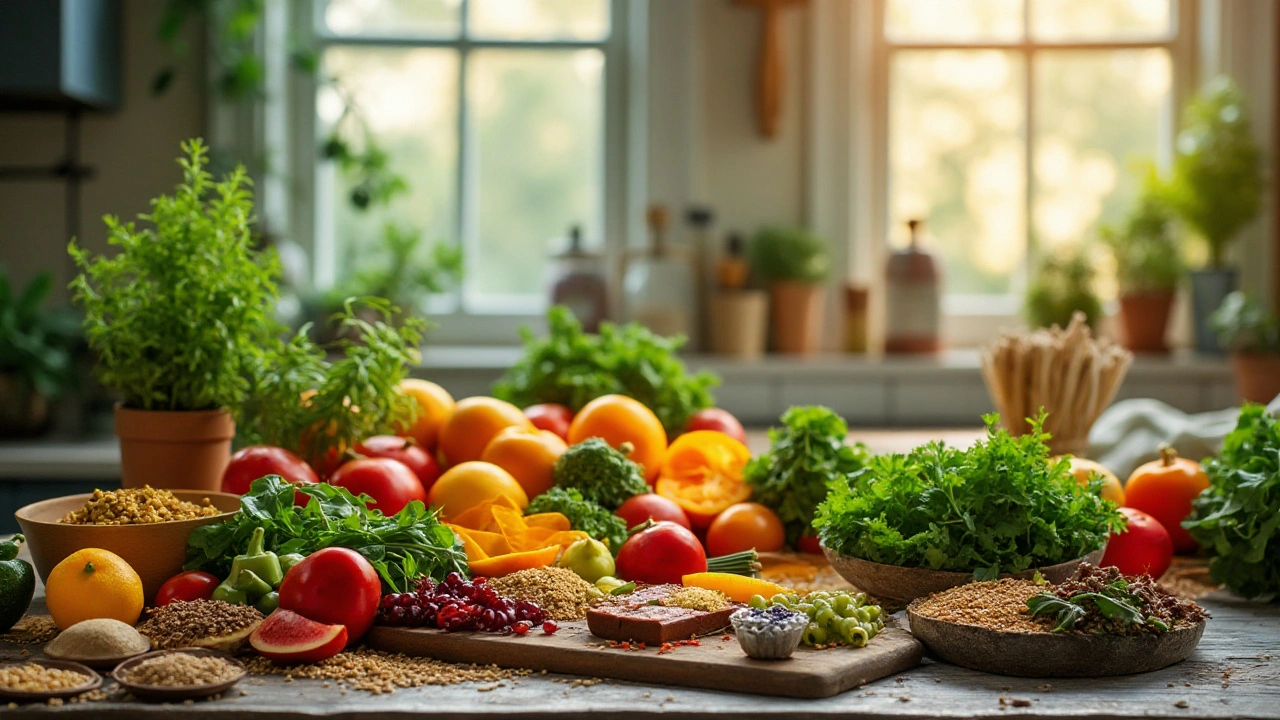Switching to a vegan diet can cut saturated fat and boost fiber, and many people notice better energy and digestion within weeks. If you want gains without guesswork, focus on real food, simple swaps, and a plan that covers protein, iron, calcium, and B12.
Start with meals that are easy to prep. Breakfast: oat porridge with soy milk, a spoon of nut butter, and berries. Lunch: big salad with chickpeas, quinoa, roasted veggies, and a tahini dressing. Dinner: lentil curry with brown rice or tofu stir‑fry loaded with colorful veggies. Keep a bag of frozen mixed vegetables and a can of beans in the cupboard for instant meals.
Snacks matter. Choose nuts, hummus and carrot sticks, apple with peanut butter, or a small handful of roasted chickpeas. For on‑the‑go energy, try homemade energy bites made from oats, dates, and seeds. Swap sugary bars for protein-rich snacks to avoid blood sugar dips that make you reach for junk food.
Watch your protein sources, but don’t panic. Beans, lentils, tofu, tempeh, seitan, edamame, and whole grains add up. Aim for a protein source at every meal. If you lift weights or train hard, add higher‑protein choices like tempeh, textured soy, or a vegan protein powder.
Mind your micronutrients. B12 isn’t reliably in plants, so use fortified foods or a supplement. Iodine, iron, and calcium are common gaps; eat iodized salt, iron‑rich lentils and spinach with vitamin C to boost absorption, and calcium‑fortified plant milks. Omega‑3s can come from ground flaxseed, chia, walnuts, or an algae DHA supplement.
Gut health and energy link closely. Fiber from vegetables, fruit, whole grains, and legumes feeds your microbiome. Try a daily mix of cooked and raw plants, and occasionally include fermented foods like sauerkraut, kimchi, or unsweetened plant yogurt to introduce helpful bacteria.
If weight loss is your goal, focus on whole foods and portion control. Plant foods vary in calorie density — avocados and nuts are healthy but calorie‑rich. Use mindful eating: pause between bites, avoid screens, and stop when comfortably full. Small changes add up: switch fries for roasted sweet potato or trade cream‑based sauces for tomato or herb‑based dressings.
Eating out and travel can be easy with a plan. Ask for beans or tofu instead of cheese, pick a veggie grain bowl, or order a side salad with olive oil and lemon. Pack portable snacks like roasted almonds or a piece of fruit so you aren't trapped in a drive‑thru.
Breakfast: oats, soy milk, banana, chia. Lunch: quinoa bowl with beans and greens. Snack: hummus and veg. Dinner: tofu stir‑fry or lentil soup. Hydrate and add green tea or a fresh vegetable juice for an antioxidant boost.
Choose fortified foods and a reliable B12 supplement. Consider vitamin D in winter and an algae omega‑3 if you don’t eat flax daily. Track bloodwork annually for iron, B12, and vitamin D so you can adjust food or supplements based on values.
A short grocery list: rolled oats, beans, lentils, quinoa, tofu, tempeh, nuts, seeds, frozen mixed veg, canned tomatoes, plant milk, tahini, leafy greens, and fruit. Prep once or twice a week: cook a pot of beans, roast a tray of vegetables, and portion salads to save time on busy days.
If you take prescription meds or have chronic conditions, check with your doctor or pharmacist about supplements and major diet changes. Some supplements and some foods can interact with medications. If you’re covered by TRICARE, ask your primary care or pharmacist for advice specific to your prescriptions.
Explore related posts for more ideas on snacks, juices, mindful eating, and gut health to make your vegan diet easier and more enjoyable.

A vegan diet can significantly improve gut health by providing an abundance of fiber and nutrients that support a diverse microbiome. This article explores the connection between plant-based eating and digestive wellness, offering practical tips for incorporating more vegan foods into your diet. It highlights the importance of dietary diversity and showcases specific vegan-friendly foods that promote gut health. Learn how to make simple dietary adjustments that will have a lasting positive impact on your digestive system.
Read More